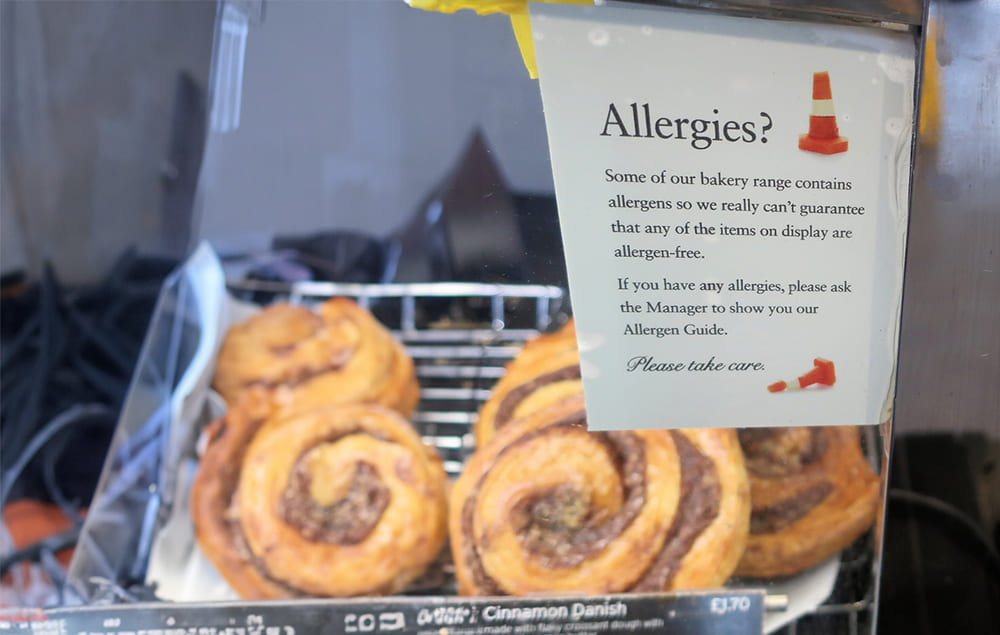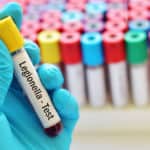
You probably wouldn’t think of a peanut as being a life-threatening object. After all, peanuts are a healthy and convenient snack. But for people who suffer from food allergies, even something as seemingly innocuous as the humble peanut can be deadly.
Food allergies can cause severe, fatal reactions. Food allergy sufferers need to know precisely what is in their food. Anyone who owns or works in a food business must abide by food labelling legislation.
One of the more recent additions to food labelling legislation is Natasha’s Law. This Law was brought into force after the tragic death of Natasha Ednan-Laperouse in 2021. Under Natasha’s Law, businesses must take extra care to label all ingredients in food products.
Failure to do so could cost someone their life.
What is Natasha’s Law?
Natasha’s Law has applied to all UK food service businesses since October 2021. It stipulates that all food pre-packed for direct sale (PPDS) must contain a clear and legible list of all ingredients.
Individual food products packaged in the same place they are sold must now have labels highlighting if they contain any of the 14 major allergens. If so, these ingredients must be printed in bold text, capital letters on the label. Or in a different colour to the rest of the text.
Before the introduction of Natasha’s Law, UK businesses were under no legal obligation to list all the ingredients of freshly made pre-packaged food products.
What Are Pre-Packed for Direct Sale (PPDS) Food Products?
PPDS food products are any food put into packaging before it’s sold on the premises where it is ordered, on the same site, or on other premises.
Eggs, flour and fast foods are all considered to be PPDS products. Bakery goods, sandwiches, and salads are also considered PPDS products. Any food products prepared and packaged by a business and then sold at a market stall or in a food van are also considered PPDS.

Food that isn’t considered to be PPDS is any food that is not served to the consumer in packaging or is served in packaging only at the consumer’s request. PPDS does not include any food product that can be altered without changing or opening the packaging.
Information about potential allergens in non-PPDS food must still be provided to consumers but can be done verbally.
It’s not always easy to determine whether a food product is PPDS. The UK Food Standards Agency has a handy online tool that you can use to make sure.
What Are the 14 Major Allergens?
Not all food ingredients carry the same amount of risk. Although a person may be allergic to other types of ingredients, 14 of them are designated as major allergens. Businesses are legally obligated to inform their customers if any products contain one or more of these major allergens.
The 14 major allergens are:
- Celery
- Cereals containing gluten (such as barley and oats)
- Crustaceans (including shrimps, crabs, and lobsters)
- Eggs
- Fish
- Lupin
- Milk
- Molluscs (including mussels and oysters)
- Mustard
- Peanuts
- Sesame
- Soybeans
- Sulphur dioxide and sulphites (if at a concentration of more than ten parts per million (ppm))
- Tree nuts (almonds, hazelnuts, walnuts, Brazil nuts, cashews, pecans, pistachios, and macadamia nuts)
Why Was Natasha’s Law Brought into Force?
In 2016, Natasha Ednan-Laperouse was a healthy and happy 15-year-old. Tragically, Natasha suffered a severe allergic reaction after consuming a freshly made artichoke, olive and tapenade baguette.
The baguette contained sesame seeds, which caused Natasha to go into anaphylaxis shock. She collapsed after consuming the baguette and was rushed to hospital. Sadly, Natasha died as a result of the anaphylaxis shortly after being admitted to hospital.
Because the baguette was freshly made on the premises and then packaged, the company that sold it had no obligation to list the ingredients on the packaging. As Natasha’s mother, Tanya, said, “If the label had listed sesame seeds, Natasha wouldn’t have touched it, and she’d still be alive.”
After the death of their daughter, Natasha’s parents began to receive letters of support from other families in the UK that had lost loved ones due to food allergies. Natasha’s parents set up the Natasha Allergy Research Foundation to fight for change to food labelling legislation.
Pressure from the media and the tireless lobbying work of the Natasha Foundation resulted in the UK government introducing Natasha’s Law in October of 2021.
What Do Businesses Need to Do to Comply with Natasha’s Law?
Natasha’s Law applies to businesses in England, Wales, Scotland and Northern Ireland. All pre-packed food that has been made on-site must contain a list of ingredients. If any of the 14 major allergens are present, they must be written in a way that stands out to the consumer.
Before Natasha’s Law, some businesses would have signs that asked customers to advise them of their allergies. Simply providing verbal information or placing the onus on the customer to enquire about ingredients is no longer sufficient.
Not conforming to the new food labelling requirements under Natasha’s Law is a criminal offence. Penalties can include significant fines and a term of imprisonment – or both.

Although deaths from food-induced anaphylaxis are rare, hospital admissions are increasing.
Follow the below advice to make sure your business complies with Natasha’s Law:
- Educate yourself and your team on what foods must be labelled
- Establish a food labelling system
- Inform your staff of the importance of food labelling
- Keep a central database of what ingredients are used in your products
- Put in place systems and processes to check that all PPDS foods are correctly labelled
- Provide your staff with accredited food allergen training
Where to Find Food Allergen Training
Business owners can help to prevent another tragedy like the loss of Natasha Ednan-Laperouse. Make sure that your staff know how to comply with Natasha’s Law.
Our Food Allergen Training will give you and your team the knowledge to prepare, handle, and sell food safely.
This knowledge can help stop another person from needlessly dying from a food allergy. Following Natasha’s Law can make the UK safer for everyone.






















































































































































































































































































































































































































































































































































